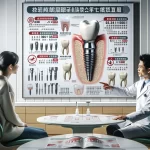Dental veneers have transformed the landscape of cosmetic dentistry, providing a stunning solution for individuals looking to enhance their smiles. These thin, custom-made shells cover the front surfaces of teeth, effectively addressing imperfections such as discoloration, chips, gaps, and misalignment. While veneers can yield remarkable results, understanding their lifespan and the factors that influence it is essential for anyone considering this dental treatment. This article explores the lifespan of dental veneers, highlights the latest technological advancements, and offers practical tips for maintaining their longevity.
Types of Dental Veneers
Porcelain Veneers
Porcelain veneers are celebrated for their durability and natural appearance. Crafted from high-quality ceramic materials, these veneers are custom-designed to fit seamlessly over your natural teeth. They are highly resistant to stains and can last between 10 to 15 years, with optimal care potentially extending their lifespan to 20 years or more.
Pros:
- Natural-looking results
- Stain-resistant
- Highly durable
- Minimally invasive
Cons:
- More expensive than alternatives
- Requires some enamel removal
- Possible increase in tooth sensitivity
- Risk of chipping or cracking
Composite Resin Veneers
Composite resin veneers offer a more budget-friendly alternative to porcelain options. Made from a tooth-colored composite material, these veneers can be applied in a single visit. However, they are generally less durable and more prone to staining, typically lasting between 5 to 7 years, with proper care extending their lifespan up to 10 years.
Pros:
- Most affordable option
- Less invasive application process
- Easy in-office repairs
- Quick application
Cons:
- More susceptible to staining
- Less durable than porcelain
- A less natural appearance
- Requires more maintenance
Factors Affecting the Lifespan of Dental Veneers
Material Quality
The longevity of dental veneers is significantly influenced by the type and quality of materials used. Porcelain veneers tend to outlast composite resin options due to their superior strength and durability. The expertise of your dentist also plays a crucial role in ensuring a successful veneer application.
Oral Hygiene Practices
Maintaining excellent oral hygiene is vital for prolonging the life of dental veneers. Regular brushing, flossing, and routine dental check-ups help prevent decay and gum disease that could compromise the integrity of the veneers. Although veneers themselves cannot develop cavities, the underlying teeth and gums remain susceptible to oral health issues.
Lifestyle Habits
Certain lifestyle choices can impact the durability of dental veneers. To prevent chipping or cracking, avoid hard foods and objects like ice or pens. Additionally, limiting stain-causing foods and beverages—such as coffee, tea, and red wine—can help maintain the appearance of your veneers. Smoking and excessive alcohol consumption can also negatively affect their longevity.
Regular Dental Check-ups
Routine visits to your dentist are essential for monitoring the condition of your dental veneers. Dentists can identify potential issues early on and provide necessary maintenance to keep your veneers in optimal condition. Biannual check-ups are recommended for maintaining both your veneers and underlying teeth.
Latest Advances in Dental Veneer Technology
Improved Materials
Recent advancements in dental materials have significantly enhanced both the durability and aesthetic appeal of veneers. Modern porcelain and composite resins are more robust and better mimic the natural appearance of teeth, leading to longer-lasting results.
Digital Design and Fabrication
The integration of digital technology into veneer design has revolutionized the process. Techniques such as digital imaging and CAD/CAM (computer-aided design and computer-aided manufacturing) allow for precise customization, ensuring a perfect fit while streamlining production time.
Minimally Invasive Techniques
Recent innovations have led to minimally invasive veneer application methods that prioritize preserving natural tooth structure while enhancing aesthetics. These techniques cater to the growing demand for less invasive cosmetic dental solutions.
Signs That Indicate Veneer Replacement is Needed
Discoloration or Staining
While dental veneers are resistant to stains, they may discolor over time—especially composite resin varieties. If you notice your veneers losing their brightness or white appearance, it may be time to consider replacement.
Chips or Cracks
Despite their durability, veneers can chip or crack due to trauma or habits like teeth grinding. Damaged veneers not only detract from your smile but may also lead to discomfort or sensitivity. Consult your dentist promptly if you notice any damage.
Gum Recession
Gum recession can expose the edges of your veneers, leading to an unsightly appearance. If you observe receding gums, it’s crucial to consult your dentist for an assessment.
Discomfort or Pain
Experiencing pain around your veneers could indicate underlying issues that need attention. A comprehensive examination by your dentist will help identify any problems and ensure long-term health for both your veneers and natural teeth.
Tips for Prolonging the Lifespan of Dental Veneers
- Proper Oral Hygiene: Brush at least twice daily with a soft-bristled toothbrush and non-abrasive toothpaste. Floss daily to remove plaque from around the veneers.
- Avoid Hard Foods: Prevent damage by steering clear of hard foods or objects that could chip your veneers.
- Use Mouthguards: If you grind your teeth at night or participate in contact sports, consider wearing a mouthguard for protection.
- Regular Dental Visits: Schedule biannual check-ups with your dentist for cleanings and assessments.
Conclusion
Dental veneers can provide a long-lasting solution for enhancing your smile when properly cared for. By understanding factors that influence their lifespan and following recommended maintenance practices, you can enjoy beautiful results for many years. Regular dental visits, good oral hygiene habits, and mindful lifestyle choices are essential for maximizing the longevity of your dental veneers. If you have concerns about your current veneers or are considering getting them, consult with your dentist for personalized advice tailored to your needs.
What is the average lifespan of dental veneers?
The average lifespan of porcelain veneers is about 10 to 15 years, while composite resin veneers typically last around 5 to 7 years. With proper care, some porcelain veneers can last over 30 years.
How can I extend the life of my dental veneers?
To extend the life of your dental veneers, maintain good oral hygiene with regular brushing and flossing, avoid using your teeth as tools, wear a mouthguard if you play sports or grind your teeth, and attend regular dental check-ups.
Are there any recent advances in dental veneers that improve their lifespan?
Recent advances such as Digital Smile Design (DSD) have improved the application and aesthetics of composite resin veneers. Porcelain veneers have also seen improvements in materials and bonding techniques, contributing to their longevity.
What factors affect the longevity of dental veneers?
Factors affecting the longevity of dental veneers include the material used (porcelain or composite), the state of your teeth prior to installation, your dental hygiene practices, and lifestyle habits such as diet and whether you grind your teeth.
What are the most common reasons for dental veneer failure?
The most common reasons for dental veneer failure include improper bonding, decay of the underlying tooth, trauma to the veneer, and issues with fit or placement. Regular dental visits can help identify and address these issues early.







